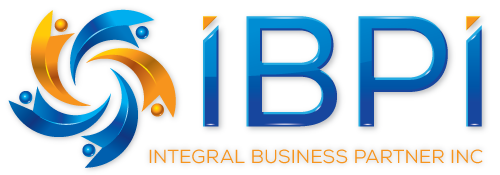Introduction: AI is Reshaping Recruiting—But It’s Not Replacing Recruiters
The recruiting industry is undergoing a massive shift. AI-powered hiring tools are screening resumes, ranking candidates, and automating tasks faster than ever.
Some recruiters fear AI will take their jobs. Others assume AI will make hiring completely data-driven and bias-free. But the truth is somewhere in the middle.
✅ AI is making recruiting faster and more efficient.
❌ AI is NOT making recruiters obsolete.
💡 The best recruiters are learning how to use AI as a force multiplier—augmenting, not replacing, their skills.
This post will explore:
🔹 Where AI actually helps in recruiting—and where it falls short.
🔹 Real-world AI failures that prove why human judgment is still essential.
🔹 How recruiters can use AI to gain a competitive edge instead of fearing it.
1. AI in Recruiting: The Hype vs. Reality
AI is often oversold as an all-knowing, bias-free hiring solution. Let’s break down some common myths vs. the real impact AI is having today.
🚀 AI Hype: “AI can find the perfect candidate for any job.”
🔍 Reality: AI can scan resumes faster than humans, but it struggles with context.
- AI reads keywords, not career stories. If a candidate’s resume lacks specific phrasing, they may get overlooked—even if they’re a great fit.
- AI struggles with non-traditional career paths. A candidate who took a career break for parenting or military service may be unfairly penalized.
- Example: AI may rank a candidate lower for a marketing role simply because their title was “Brand Strategist” instead of “Marketing Manager.”
💡 Takeaway: AI is a speed tool, not a quality filter. Recruiters still need to review and refine AI-sourced candidates to avoid missing top talent.
🤖 AI Hype: “AI eliminates hiring bias.”
⚠️ Reality: AI can amplify bias if it’s not carefully managed.
- AI models are trained on historical hiring data. If past hiring decisions were biased, the AI learns and repeats those biases.
- Example: Amazon shut down its AI hiring tool after it discriminated against female candidates for tech jobs—because it was trained on male-dominated hiring data.
- AI ranks candidates based on past patterns. If a company historically hired mostly Ivy League grads, AI may automatically downgrade candidates from other schools.
💡 Takeaway: AI can detect bias, but only if recruiters audit its decisions.
⚡ AI Hype: “AI can predict who will succeed in a role.”
📊 Reality: AI makes predictions based on past hiring patterns—not future potential.
- AI analyzes who has been hired successfully before, but it can’t measure motivation, adaptability, or leadership potential.
- Example: If a company’s top-performing sales hires all had a background in finance, AI may wrongly exclude a high-performing sales candidate from another industry.
💡 Takeaway: AI can provide data-driven insights, but human recruiters must still evaluate candidates holistically.
2. Real-World AI Failures in Hiring
While AI has improved efficiency, it has also failed in ways that prove human judgment is irreplaceable.
❌ AI Eliminating Strong Candidates for the Wrong Reasons
🔹 An AI-driven ATS at a Fortune 500 company rejected candidates with resume gaps—even when those gaps were for maternity leave, caregiving, or military service.
💡 Lesson: AI often filters candidates too aggressively.
❌ AI Reducing Diversity Instead of Increasing It
🔹 A hiring platform’s AI recommended only candidates who “matched” previous hires. This led to fewer diverse hires, not more.
💡 Lesson: AI reinforces hiring patterns unless recruiters step in to adjust for fairness.
❌ AI Misreading Candidate Intent
🔹 Sentiment analysis tools have mistakenly flagged enthusiastic candidates as “uninterested” because of tone or phrasing quirks.
💡 Lesson: AI lacks emotional intelligence—human recruiters must interpret the real meaning behind a candidate’s responses.
3. The AI-Augmented Recruiter: How the Best Recruiters Are Using AI Today
The most successful recruiters aren’t resisting AI—they’re using it to their advantage.
🔹 How Top Recruiters Are Leveraging AI Right Now:
✅ AI-powered sourcing tools (HireEZ, Eightfold AI) to automate candidate search & outreach.
✅ AI chatbots (Paradox, Humanly) to handle initial screening & scheduling.
✅ Sentiment analysis tools (HireLogic) to gauge candidate enthusiasm & engagement.
✅ AI-assisted interview feedback tools (Metaview) to capture hiring manager insights.
✅ Predictive analytics (Beamery) to identify candidates who are likely to leave their current job.
💡 The best recruiters use AI to work smarter—not as a substitute for real engagement.
4. The Future of AI in Recruiting: What’s Next?
AI is evolving rapidly. What should recruiters prepare for?
🔮 Emerging AI Trends:
🚀 AI-generated job descriptions & outreach messages that are fully personalized in seconds.
🔍 Real-time candidate matching based on values, motivations, and culture fit—not just skills.
⚡ AI-driven career coaching that helps candidates upskill and navigate career changes.
💡 What Won’t Change?
👥 The importance of trust & relationships.
🧠 The need for human intuition & judgment.
💬 The value of persuasion, negotiation, and emotional intelligence.
AI will enhance the recruiter’s role—but it will never replace the recruiter’s impact.
Final Thoughts: AI is a Tool—Not a Replacement
Recruiters who embrace AI as a competitive advantage will outperform those who resist it.
✅ AI can automate sourcing, but it can’t build relationships.
✅ AI can analyze resumes, but it can’t read between the lines.
✅ AI can flag great candidates, but it can’t close the deal.
💡 The future of recruiting isn’t AI vs. humans—it’s AI + humans.
Up next: Post 2: The Human Element – Why Soft Skills Matter More Than Ever. 🚀
